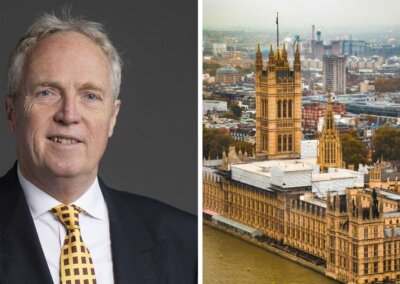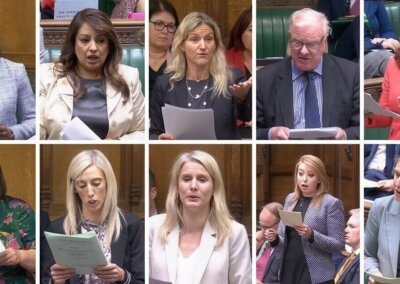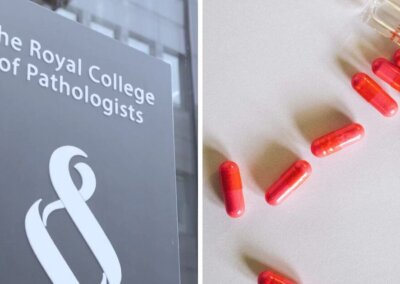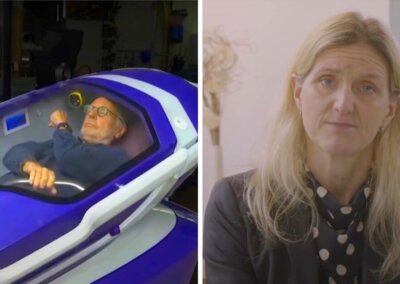Kim Leadbeater’s assisted suicide Bill could be undermined by a lack of available and trained psychiatrists, according to leading members of the profession.
The psychiatrists’ warnings come after Leadbeater tabled a series of amendments to remove the requirement for a High Court judge to approve assisted suicide applications towards the end of last month. The flagship High Court safeguard will instead be replaced by a panel, dubbed the ‘death panels’, and will include a more junior legal figure, a social worker and a psychiatrist.
However, The Telegraph reports that while Leadbeater assured them there would be sufficient available psychiatrists, she had not consulted the Royal College of Psychiatrists (RCP) before assigning the role. Professor Gareth Owen, Honorary Consultant Psychiatrist at King’s College London, pushed back warning that each assisted suicide application would “probably not” receive a proper psychiatrist assessment “given the current workforce” within the NHS.
Professor Allan House, Emeritus Professor of Liaison Psychiatry at the University of Leeds, said it was “not at all clear” there would be enough psychiatrists. Professor House said “Does psychiatry have the capacity for this? Well, one of the other things that the Royal College census shows is that, across the UK, 28 per cent of all consultant jobs are either vacant or filled by non-substantive staff”.
“So you are asking a profession that can’t fill a quarter of its consultant jobs with full-time consultants if they want to release 30 people to do this work… [I]s there sufficient capacity? It is not at all clear that there is”.
Professor Owen also questioned whether there were sufficient psychiatrists for the legislation, saying “There is a difference between being open to this work in theory and the capacity to take it on: consultants have busy NHS job plans already and there are going to be new workforce demands, including the increased role for consultants in the revised Mental Health Act”.
Criticism of the inclusion of psychiatrists in panels
In a scathing letter to The Guardian, Professor House wrote “The latest twist is Leadbeater’s proposal that a psychiatrist will be part of a panel that will review decisions made by two doctors whose assessment does not meet the standards recommended by her psychiatric witnesses”.
“The rationale for this approach seems to be that the last months of life are so self-evidently not worthwhile that there is no need to ask about, or offer help with, possibly modifiable influences on the decision to seek assisted suicide. Therein lies the danger of the bill and the real reason for much opposition to it”.
“Workforce shortages” a significant issue
Kim Leadbeater told The Telegraph that “several thousand psychiatrists” were ready to be part of panels, based on an RCP survey that only received a 10.5% response, or 1,474 responses out of 14,091 members. 58% of these said they would be unwilling to participate as a medical professional in assisted suicide, with 30% saying they would be willing to do so.
However, Professor House noted that the low response made it difficult to take accurate data. He said “No reputable journal would publish a study with a 10 per cent response to a survey. You absolutely can’t extrapolate from it. It is going to be a highly biased sample”.
Dr Lade Smith, RCP president, told The Telegraph that the lack of psychiatrists within the NHS needed addressing, saying “There are still a number of outstanding issues that need to be considered, including workforce shortages”.
Professor Katherine Sleeman, a specialist in palliative care who was among the witnesses who gave evidence before the Committee at the end of January, said she was “stunned that the committee for a Bill that quite literally rewrites the Suicide Act of 1961 voted against inviting the Royal College of Psychiatrists to give oral evidence”.
Spokesperson for Right To Life UK, Catherine Robinson, said “Within this rushed legislative process, Kim Leadbeater’s inclusion of psychiatrists on the so-called ‘death panels’, without consulting the professional body responsible for psychiatry, is another unwelcome twist. Only last month, the Royal College of Psychiatrists revealed that 1.6 million people are waiting for mental health care, where early treatment is often essential”.
“It is yet another sign that this reckless and dangerous Bill is a disaster in waiting. It should be voted down at Third Reading”.












